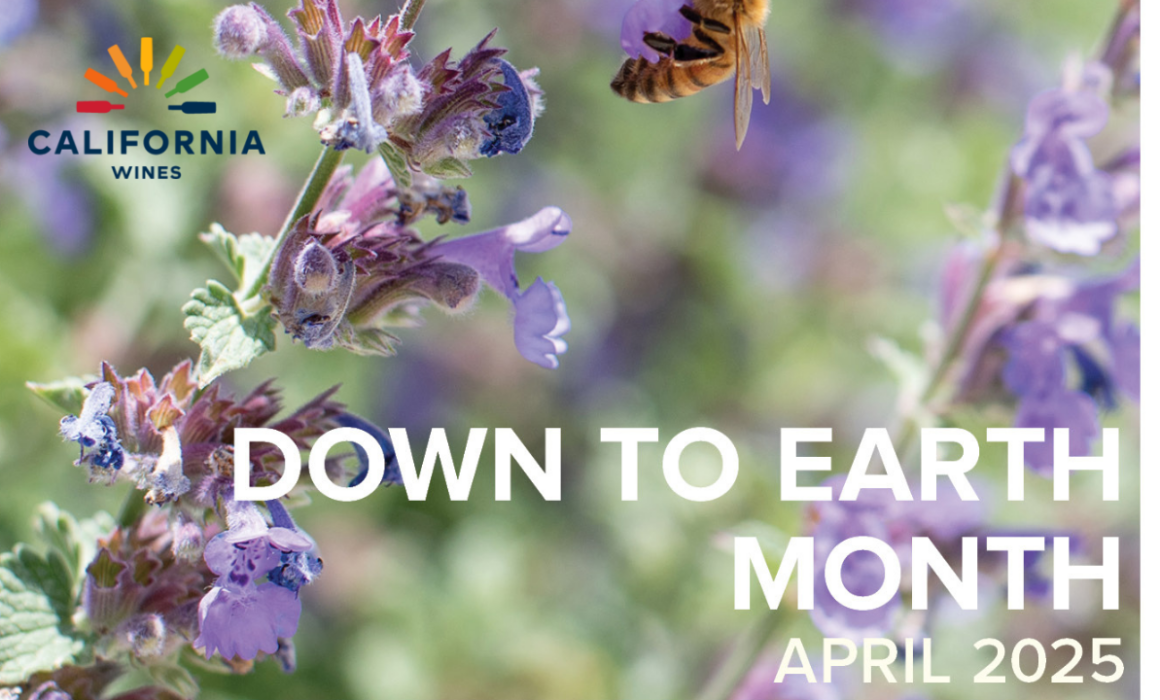California’s Leadership in Sustainable Grapegrowing
By Virginie Boone
All of April California celebrates the wine industry’s commitment to sustainability with Down to Earth month, highlighting the state’s leadership in sustainable viticulture and winemaking.
The Certified California Sustainable Vineyards and Wineries program is about growing quality winegrapes and making quality wines while protecting the environment, being a good neighbor and employer, and maintaining thriving family farms and businesses. Certification is done by a third-party auditor.
The amount of vineyards certified under the California Sustainable Winegrowing program has grown 86% since 2018, representing about 65% of total vineyard acreage in the state; the amount of certified wineries has grown 50% in that same time period. Another 22% are certified under other programs, which can include organic, biodynamic and regenerative farming practices.
Sonoma County remains far and away a leader in holding these certifications for both wineries and vineyards with 1,108 listed within the California Certified Sustainable database. The next highest is Napa County with 303.
The key areas of sustainable certification for vineyards center around water efficiency, pest management, healthy soils and energy efficiency, as well as the categories of stewardship, neighbors, employees and contributions.
Wineries also focus on water efficiency and energy efficiency but also waste management and supply chain. A comprehensive Workbook exists to help winegrowers evaluate their level of sustainability and learn more about improving practices.
But the best way to learn is to visit.
Here are 10 Certified Sonoma County wineries with tasting rooms:
Balletto – The Russian River Valley-based grower and winery has an extensive section on its website detailing the work it does in the vineyards with cover crops, its responsible water use, natural pest control, soil moisture monitoring, composting, making of solar-powered wine and a whole lot more, and has long been an active proponent in Sonoma County’s commitment to becoming the first 100% sustainable wine region in the United States.
Benziger – In the folds of Sonoma Mountain, Benziger has farmed in Glen Ellen for some 30 years, putting down roots in 1980 after buying the old Wegener Ranch. Over time they adopted Biodynamic farming practices, getting Demeter-certified in 2000. On April 13 VP/Brand Ambassador Chris Benziger will lead a Casual Biodynamic Vineyard Tour on the ranch.
Crossbarn – Started in 2000 by Paul Hobbs to honor his family’s family heritage and values of farming sustainably, this Sebastopol-based winery is in a former apple processing facility, where the wines are made from grapes grown across Sonoma County.
Hartford Family – Set just outside of Forestville, the first Hartford Court wines were released in 1996, and the winery remains committed to working with older-vined vineyards across the county, like Fanucchi-Wood Road and Arrendell. It farms sustainable organic.
Jordan – One of the grand Alexander Valley estates, Jordan is a certified sustainable winery and vineyard and farms other agricultural products as well across its 1,200 acres, from cattle to vegetables. It maintains considerable natural habitat around its 18 estate vineyard blocks. It is also the largest winery pollinator sanctuary after having turned 10 acres of non-native grassland into preserved habitat for pollinators like native bees and Monarch butterflies.
Pedroncelli – An historic family-owned property in the Dry Creek Valley that dates back to 1927, Pedroncelli’s vineyards are certified sustainable, and they take a comprehensive approach to all they do, from human resources to soil management.
Rodney Strong – Family-owned and operated, the winery based just outside of Healdsburg is 100% certified-sustainable in its 12 estate vineyards, which span across the Alexander Valley, Russian River Valley and Chalk Hill. The winery has long been committed to sustainable practices, earning the Sustainable Winegrowing Green Medal Leadership Award in 2004.
Seghesio – Based in Healdsburg, the Seghesio family first planted grapes at its Home Ranch Vineyard in 1895. It now farms more than 300 acres of sustainable vineyards in the Alexander, Dry Creek and Russian River valleys, some of them still planted to head-trained old vines and has some of the oldest Sangiovese in America.
St. Francis – Based in the heart of Sonoma Valley, the winery operates on three sustainability pillars: environment, equity and economics. It considers each one each time it makes a business decision. In addition to overseeing the winery’s 400 acres of certified-sustainable estate vineyards, Director of Vineyards Jake Terrell assisted in revising the Code of Sustainable Winegrowing Practices and its ongoing standards for sustainable practices in the wine industry.
Three Sticks – The winery based in the town of Sonoma is 100% estate, owning and farming such heritage vineyards as Durell, Gap’s Crown and Walala, all on the Sonoma Coast, while also selling these grapes to other producers. Its monopole sites include Alana, One Sky and William James, located in the Russian River Valley and on Sonoma Mountain. Certified sustainable, it looks at the three e’s in all decision-making, ecological stewardship, social equity and economic validity.
Image by: California Wine Institute


